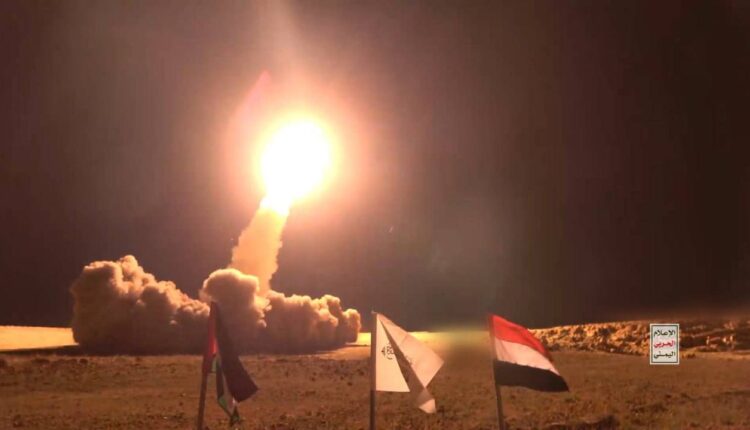Hebrew newspaper complains of the increasing regional influence of Sana’a
The Times of Israel reported that globalization has enabled Sana’a’s forces to play a wide-ranging regional role and exert influence that was previously only available to the great powers through their participation in the war against Israel in support of the Palestinians.
Follow ups – Al-Khabar Al-Yemeni:
In a report published on Monday evening, the website pointed out that Yemen, despite its geographical distance from (Israel) of about 2,000 kilometers—the equivalent of the distance between London and Tripoli—and the absence of common borders or direct interests, Sana’a’s forces have launched hundreds of missiles towards (Israel).
The report highlighted the transformations that have occurred in the nature of international conflicts, noting that while wars were once fought between neighboring countries, developments in the fields of technology and transportation have made it possible to deploy forces and wage conflicts over long distances. However, it pointed out that previous military interventions, such as the Vietnam War or the Falkland Islands, had provoked popular opposition within the countries that waged them.
In contrast, the report believes that Sana’a’s forces’ participation in the war on Gaza has bolstered their domestic standing, as they have become a source of pride and widespread popular support.
The report added that globalization has not only enabled Sana’a’s forces to strengthen their influence but has also helped them emerge as a key regional player in the region.
The report also noted the absence of any domestic protests against Sana’a’s forces, but rather, they have received notable support, citing the demonstrations witnessed in Britain last year, where protesters chanted in support of them, saying, “Yemen, Yemen, make us proud, force another ship to leave,” in reference to the series of operations that targeted Israeli ships or those associated with the Israeli enemy during the recent period.
Regarding efforts to confront Sana’a’s forces, the report affirmed that globalization, despite the opportunities it has provided, has not offered clear solutions to contain their influence, describing the idea of the existence of a “global system capable of providing easy solutions to distant conflicts” as a “naive vision.”

